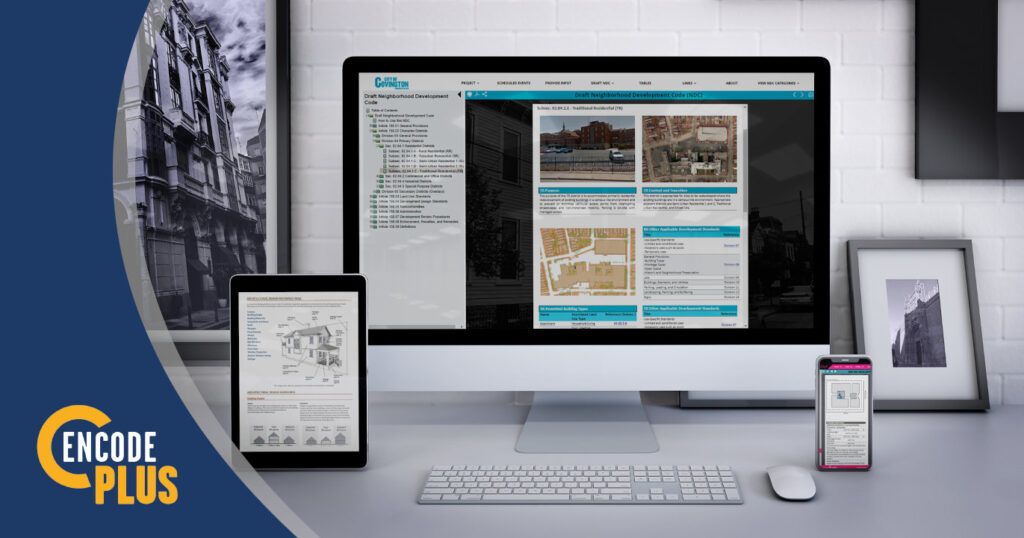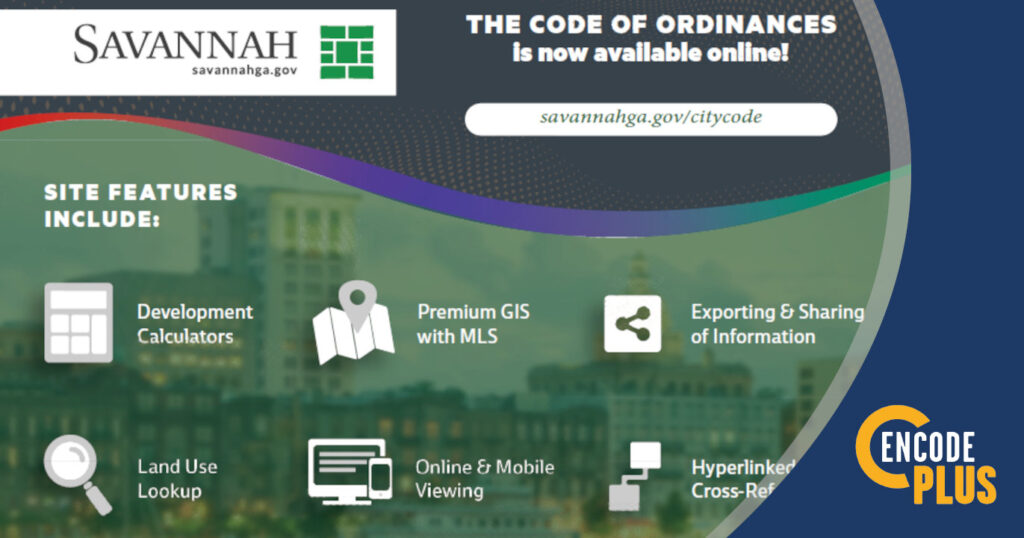Integrate Interactive Form-Based Code Tools into Advanced Municipal Planning Software

enCodePlus municipal planning software has developed advanced, interactive form-based code tools that make the traditionally difficult task of working with form-based code a seamless, intuitive process. enCodePlus, a municipal planning software company, has created an innovative solution to this persistent code management problem.
Superior Collaborative Drafting in the Cloud, Powered By enCodePlus

Innovative municipal planning and zoning software offers a fully functional, integrated collaboration platform, created specifically to address the unique challenges of municipal planners and planning consultants. Collaborative drafting in the cloud is possible! The enCodePlus municipal planning and zoning software effectively accomplishes what other programs fail to do.
Savannah, GA, Launches enCodePlus-Powered Code of Ordinances Website

The City of Savannah, GA, has just launched its next-generation enCodePlus-powered website that features easy access to their Code of Ordinances and new Zoning Ordinance. The fastest-growing company in the municipal planning software industry, enCodePlus, offers what no one else can – a completely integrated, cloud-based code-publishing tool with advanced interactive features and streamlined editing capabilities.
The Evolution of enCodePlus

With roots in the early ‘90s as a simple PC-based software product designed to digitize zoning ordinances, enCodePlus has evolved into the fully integrated, feature-rich municipal planning and zoning platform it is today. enCodePlus has emerged as the industry-leading planning and zoning tool of choice for local governments of all sizes, from small communities to larger metropolitan cities and counties.
ALERT – North Carolina General Statutes Update

The new Chapter 160D local planning and development regulations of the North Carolina General Statutes combines current land use regulations (Chapters 153A and 160A) into one, consolidated chapter that more coherently organizes the statutes. While there are not major policy or scope shifts, cities and counties must incorporate these changes into their local development regulations by July 1, 2021.